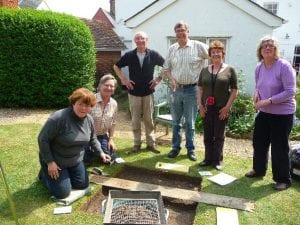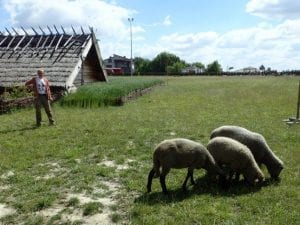Rural communities everywhere are affected by urbanisation, migration and technological innovation, often while the local subaltern heritage is overlooked and resources for heritage protection diminish, but local archaeology projects have been shown to deliver benefits which can help mitigate these challenges. From 2019-22 the Community Archaeological in Rural Environments – Meeting Social Challenges (CARE MSoC) project aims to explore the feasibility and impact of extending one particular approach, used successfully in the UK, to other European countries, using methodologies from archaeology, historical geography, social psychology, digital humanities and medieval studies.
Over three years, local people in the Czech Republic, Netherlands, Poland will work with archaeologists to make new discoveries about the village they live in, using finds from multiple one-metre square ‘test pit’ excavations which residents themselves plan and carry out throughout the village in which they live. The outcomes will be analysed at local, national and international levels and disseminated via international project partners including the European Archaeological Council.
CARE MSoC aims to take cultural heritage practice beyond the state of the art within a broad international setting, delivering knowledge exchange in a transdisciplinary context, supporting interactions and partnerships and maximizing the value of the research outcomes.
What CARE-MSoC will do:
CARE-MSoC will research the transnational potential of TPE across four European countries, focussing in particular on understanding the precise mechanisms by which it achieves its impact and how existing approaches can be adapted to different pre-existing circumstances in different countries. CARE-MSoC will disseminate this knowledge and create toolkits to help heritage practitioners deliver such programmes more widely in the future. The selected case studies are villages in the countries extending from West to Central Europe (UK, Netherlands, Poland and Czech Republic), encompassing regions which are extremely varied in terms of culture, landscape, history and rurality.


